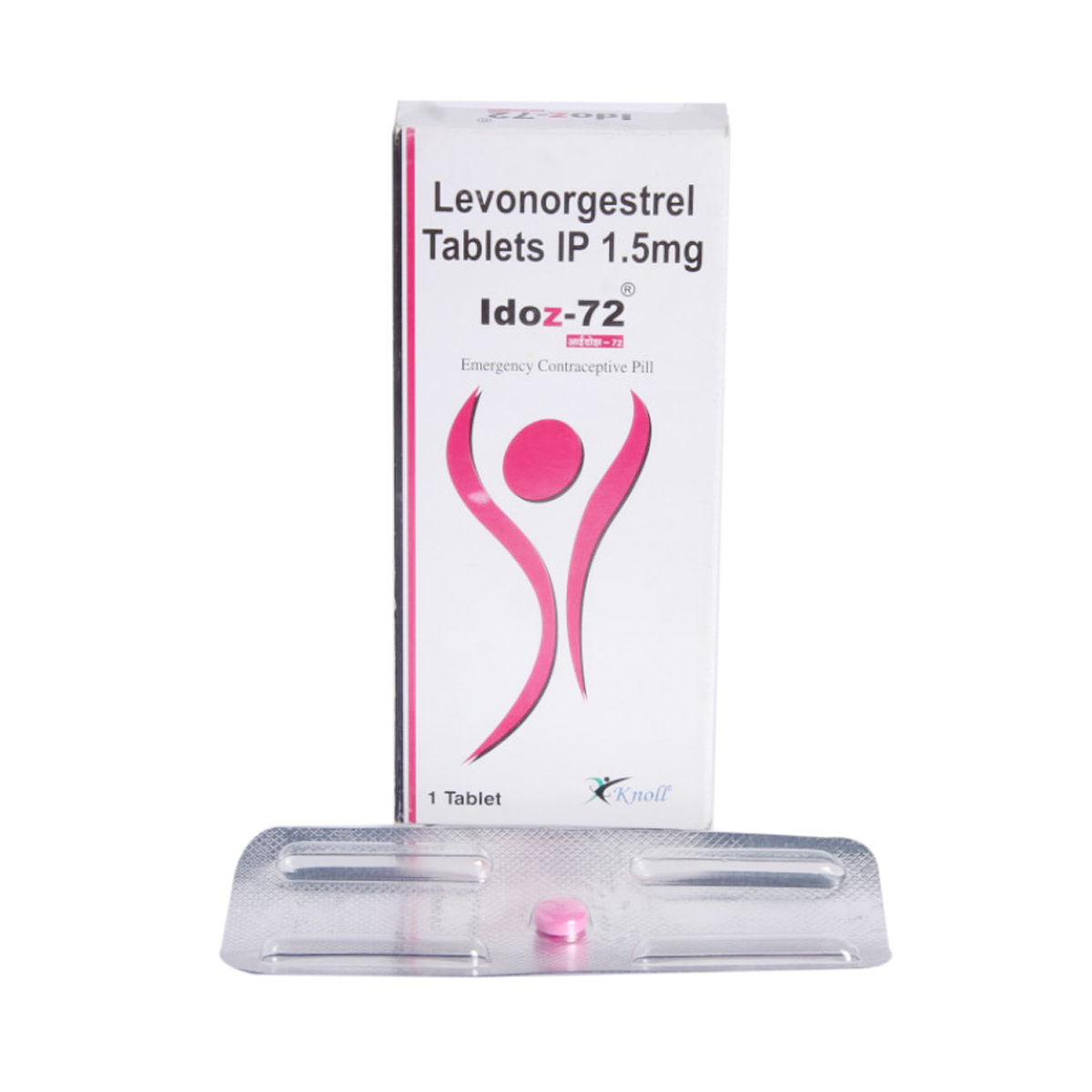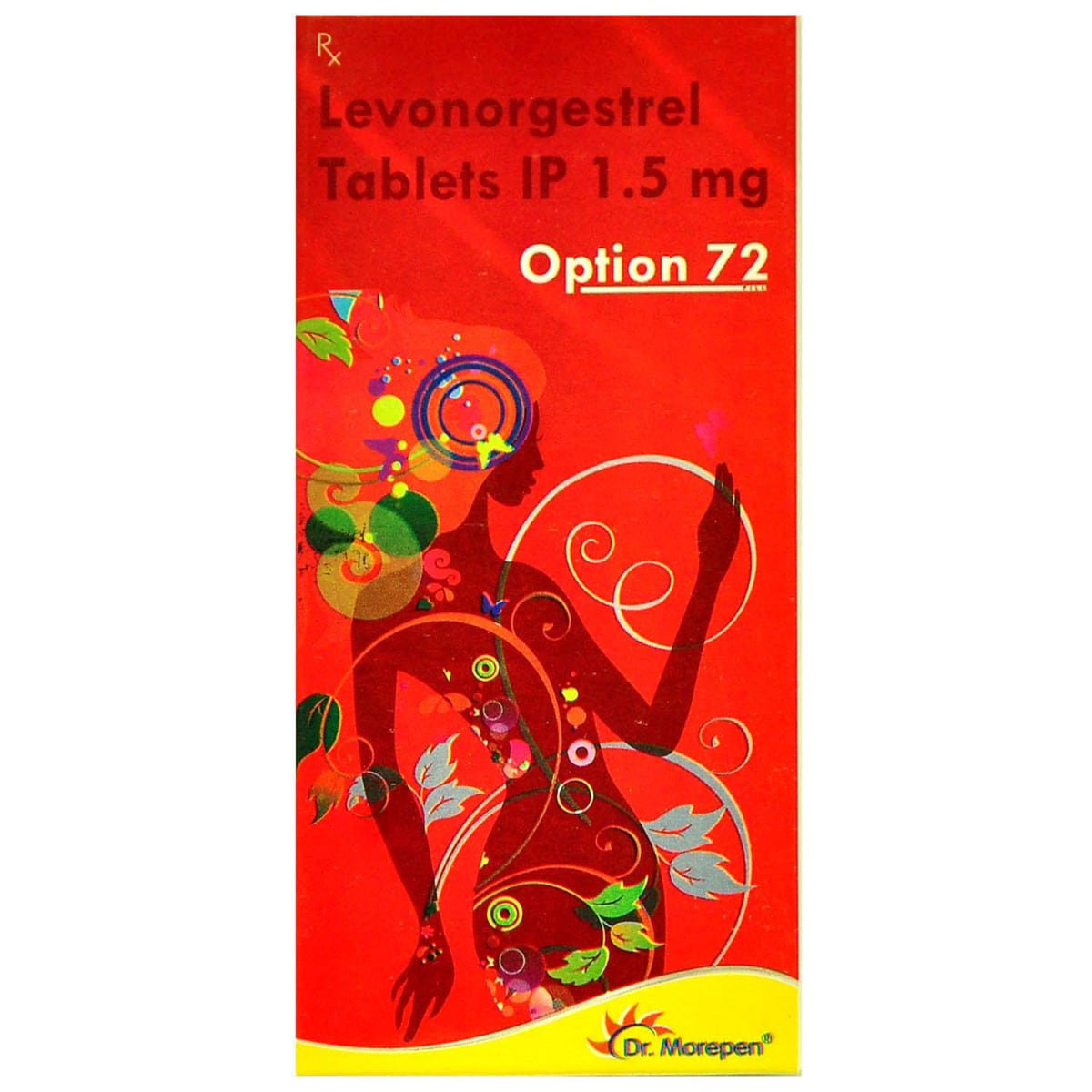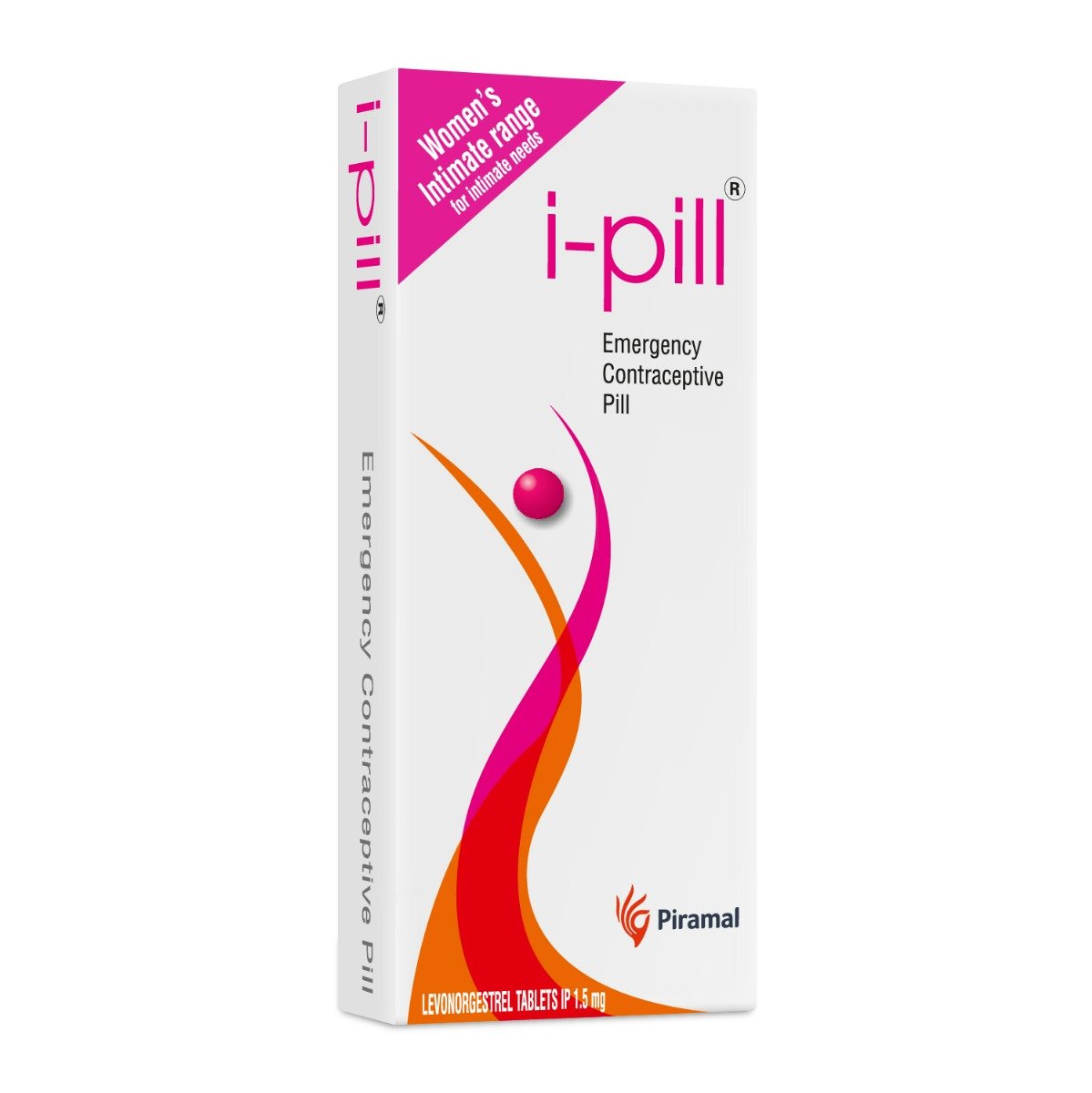I-Pill Emergency Contraceptive Pill 1's
Written By Urvashi Bharti , MBBS
Reviewed By Sunny S , MBBS


Write a Review
MRP ₹75
(Inclusive of all Taxes)
₹11.3 Cashback (15%)
Extra 10% Off with Bank Offers
Provide Delivery Location
Non returnable*
COD available
Online payment accepted
 Prescription drug
Prescription drugWhats That
Side effects of I-Pill Emergency Contraceptive Pill
Overcome Medication-Induced Nausea: A 9-Step Plan
- Inform your doctor about the nausea and discuss possible alternatives to the medication or adjustments to the dosage.
- Divide your daily food intake into smaller, more frequent meals to reduce nausea.
- Opt for bland, easily digestible foods like crackers, toast, plain rice, bananas, and applesauce.
- Avoid certain foods that can trigger nausea, such as fatty, greasy, spicy, and smelly foods.
- Drink plenty of fluids, such as water, clear broth, or electrolyte-rich beverages like coconut water or sports drinks.
- Use ginger (tea, ale, or candies) to help relieve nausea.
- Get adequate rest and also avoid strenuous activities that can worsen nausea.
- Talk to your doctor about taking anti-nausea medication if your nausea is severe.
- Record when your nausea occurs, what triggers it, and what provides relief to help you identify patterns and manage your symptoms more effectively.
- Drink water or other clear fluids.
- To prevent worsening of pain, limit intake of tea, coffee, or alcohol.
- Include bland foods like rice, toast, crackers, and rice in your diet.
- Avoid lying down immediately after eating as it may cause indigestion or heartburn.
- Avoid acidic and spicy food as it may cause indigestion.
- Rest well; get enough sleep.
- Eat a balanced diet and drink enough water.
- Manage stress with yoga and meditation.
- Limit alcohol and caffeine.
- Physical activities like walking or jogging might help boost energy and make you feel less tired.
Dealing with Medication-Induced Headache:
- Hydrate your body: Drink enough water to prevent dehydration and headaches.
- Calm Your Mind: Deep breathing and meditation can help you relax and relieve stress.
- Rest and Recharge: Sleep for 7-8 hours to reduce headache triggers.
- Take rest: lie down in a quiet, dark environment.
- Cold or warm compresses can help reduce tension.
- Stay Upright: Maintain good posture to keep symptoms from getting worse.
- To treat headaches naturally, try acupuncture or massage therapy.
- Over-the-counter pain relievers include acetaminophen and ibuprofen.
- Prescription Assistance: Speak with your doctor about more substantial drug alternatives.
- Severe Headaches: Seek emergency medical assistance for sudden, severe headaches.
- Frequent Headaches: If you get reoccurring headaches, consult your doctor.
- Headaches with Symptoms: Seek medical attention if your headaches include fever, disorientation, or weakness.
Here are the 7 steps to manage Dizziness caused by medication:
- Inform your doctor about dizziness symptoms. They may adjust your medication regimen or prescribe additional medications to manage symptoms.
- Follow your doctor's instructions for taking medication, and take it at the same time every day to minimize dizziness.
- When standing up, do so slowly and carefully to avoid sudden dizziness.
- Avoid making sudden movements, such as turning or bending quickly, which can exacerbate dizziness.
- Drink plenty of water throughout the day to stay hydrated and help alleviate dizziness symptoms.
- If you're feeling dizzy, sit or lie down and rest until the dizziness passes.
- Track when dizziness occurs and any factors that may trigger it, and share this information with your doctor to help manage symptoms.
- Use hot or cold packs on your breasts to help alleviate discomfort.
- Choose a supportive, well-fitting bra, preferably one that has been professionally fitted.
- Practice relaxation techniques to manage stress and anxiety that may accompany severe breast pain.
- Limit or avoid caffeine consumption.
- Eat a low-fat diet and focus on foods rich in complex carbohydrates.
- Rubbing evening primrose oil on your breasts may help balance fatty acids in the cells and reduce pain.
- Keep track of when your breast pain occurs and any other symptoms to determine if the pain is regular or not.
- Vitamin E supplements may help reduce pain for women who experience pain linked to their menstrual cycle.
- Over-the-counter pain relievers like acetaminophen or ibuprofen can provide relief, but be sure to consult your doctor for the correct dosage, as prolonged use may cause side effects.
Drug-Drug Interactions
LevonorgestrelEtretinate
Critical
Critical
Drug-Drug Interactions
Login/Sign Up
LevonorgestrelEtretinate
Critical
How does the drug interact with I-Pill Emergency Contraceptive Pill:
Using etretinate and I-Pill Emergency Contraceptive Pill can cause severe birth defects.
How to manage the interaction:
Taking Etretinate with I-Pill Emergency Contraceptive Pill can cause an interaction, consult a doctor before taking it. Do not stop using any medications without talking to a doctor.
Using etretinate and I-Pill Emergency Contraceptive Pill can cause severe birth defects.
How to manage the interaction:
Taking Etretinate with I-Pill Emergency Contraceptive Pill can cause an interaction, consult a doctor before taking it. Do not stop using any medications without talking to a doctor.
Critical
How does the drug interact with I-Pill Emergency Contraceptive Pill:
Taking I-Pill Emergency Contraceptive Pill with Tranexamic acid may increase the risk of blood clot formation which can lead to serious conditions such as heart problems and kidney failure.
How to manage the interaction:
Taking Tranexamic acid with I-Pill Emergency Contraceptive Pill may leads to an interaction but can be taken if prescribed by the doctor. However, if you experience chest pain; shortness of breath; coughing up blood; blood in the urine; sudden loss of vision; and pain, redness, or swelling in your arm or leg, consult the doctor immediately. Do not stop using any medications without talking to a doctor.
Taking I-Pill Emergency Contraceptive Pill with Tranexamic acid may increase the risk of blood clot formation which can lead to serious conditions such as heart problems and kidney failure.
How to manage the interaction:
Taking Tranexamic acid with I-Pill Emergency Contraceptive Pill may leads to an interaction but can be taken if prescribed by the doctor. However, if you experience chest pain; shortness of breath; coughing up blood; blood in the urine; sudden loss of vision; and pain, redness, or swelling in your arm or leg, consult the doctor immediately. Do not stop using any medications without talking to a doctor.
Critical
How does the drug interact with I-Pill Emergency Contraceptive Pill:
Coadministration of Acitretin with I-Pill Emergency Contraceptive Pill can increase the risk and severity of birth defects in unborn when taken by a pregnant woman.
How to manage the interaction:
Taking Acitretin with I-Pill Emergency Contraceptive Pill together is generally avoided as it can result in an interaction, it can be taken if a doctor has advised it. Consult a doctor if you get pregnant while taking these medications. Never use acitretin if you are pregnant. Do not stop using any medications without talking to a doctor.
Coadministration of Acitretin with I-Pill Emergency Contraceptive Pill can increase the risk and severity of birth defects in unborn when taken by a pregnant woman.
How to manage the interaction:
Taking Acitretin with I-Pill Emergency Contraceptive Pill together is generally avoided as it can result in an interaction, it can be taken if a doctor has advised it. Consult a doctor if you get pregnant while taking these medications. Never use acitretin if you are pregnant. Do not stop using any medications without talking to a doctor.
Severe
How does the drug interact with I-Pill Emergency Contraceptive Pill:
Using I-Pill Emergency Contraceptive Pill with tizanidine can result in increased side effects.
How to manage the interaction:
Although taking I-Pill Emergency Contraceptive Pill and tizanidine together can result in an interaction, they can be taken if a doctor has prescribed it. However, if you experience drowsiness, confusion, slow heart rate, shallow breathing, feeling light-headed, fainting, consult the doctor. Do not discontinue any medication without consulting a doctor.
Using I-Pill Emergency Contraceptive Pill with tizanidine can result in increased side effects.
How to manage the interaction:
Although taking I-Pill Emergency Contraceptive Pill and tizanidine together can result in an interaction, they can be taken if a doctor has prescribed it. However, if you experience drowsiness, confusion, slow heart rate, shallow breathing, feeling light-headed, fainting, consult the doctor. Do not discontinue any medication without consulting a doctor.
LevonorgestrelSugammadex
Severe
How does the drug interact with I-Pill Emergency Contraceptive Pill:
Taking I-Pill Emergency Contraceptive Pill and Sugammadex may reduce the blood levels and effects of I-Pill Emergency Contraceptive Pill.
How to manage the interaction:
Although there is a possible interaction between Sugammadex and I-Pill Emergency Contraceptive Pill, you can take these medicines together if prescribed by a doctor. Your doctor can recommend other options that won't cause any problems when taken together. Do not stop using any medications without talking to a doctor.
Taking I-Pill Emergency Contraceptive Pill and Sugammadex may reduce the blood levels and effects of I-Pill Emergency Contraceptive Pill.
How to manage the interaction:
Although there is a possible interaction between Sugammadex and I-Pill Emergency Contraceptive Pill, you can take these medicines together if prescribed by a doctor. Your doctor can recommend other options that won't cause any problems when taken together. Do not stop using any medications without talking to a doctor.
How does the drug interact with I-Pill Emergency Contraceptive Pill:
Using I-Pill Emergency Contraceptive Pill with griseofulvin may reduce I-Pill Emergency Contraceptive Pill blood levels and effects.
How to manage the interaction:
Although taking I-Pill Emergency Contraceptive Pill and griseofulvin together can result in an interaction, it can be taken if a doctor has prescribed it. If you use hormone replacement treatment(I-Pill Emergency Contraceptive Pill) for menopause, consult the doctor if your symptoms do not improve or if you begin to bleed abnormally. Do not discontinue any medications without consulting a doctor.
Using I-Pill Emergency Contraceptive Pill with griseofulvin may reduce I-Pill Emergency Contraceptive Pill blood levels and effects.
How to manage the interaction:
Although taking I-Pill Emergency Contraceptive Pill and griseofulvin together can result in an interaction, it can be taken if a doctor has prescribed it. If you use hormone replacement treatment(I-Pill Emergency Contraceptive Pill) for menopause, consult the doctor if your symptoms do not improve or if you begin to bleed abnormally. Do not discontinue any medications without consulting a doctor.
LevonorgestrelRifapentine
Severe
How does the drug interact with I-Pill Emergency Contraceptive Pill:
Taking I-Pill Emergency Contraceptive Pill and Rifapentine may lower I-Pill Emergency Contraceptive Pill blood levels and effects.
How to manage the interaction:
Although taking I-Pill Emergency Contraceptive Pill and rifapentine together can result in an interaction, they can be taken if a doctor has prescribed it. If you use hormone replacement treatment(I-Pill Emergency Contraceptive Pill) for menopause, consult the doctor if your symptoms do not improve or if you begin to bleed abnormally. Do not stop using any medications without talking to a doctor.
Taking I-Pill Emergency Contraceptive Pill and Rifapentine may lower I-Pill Emergency Contraceptive Pill blood levels and effects.
How to manage the interaction:
Although taking I-Pill Emergency Contraceptive Pill and rifapentine together can result in an interaction, they can be taken if a doctor has prescribed it. If you use hormone replacement treatment(I-Pill Emergency Contraceptive Pill) for menopause, consult the doctor if your symptoms do not improve or if you begin to bleed abnormally. Do not stop using any medications without talking to a doctor.
How does the drug interact with I-Pill Emergency Contraceptive Pill:
Taking I-Pill Emergency Contraceptive Pill and carbamazepine together can reduce the effects of I-Pill Emergency Contraceptive Pill.
How to manage the interaction:
Although taking I-Pill Emergency Contraceptive Pill and carbamazepine together can result in an interaction, it can be taken if a doctor has prescribed it. However, if you experience any unusual symptoms contact a doctor immediately. Do not stop using any medications without talking to a doctor.
Taking I-Pill Emergency Contraceptive Pill and carbamazepine together can reduce the effects of I-Pill Emergency Contraceptive Pill.
How to manage the interaction:
Although taking I-Pill Emergency Contraceptive Pill and carbamazepine together can result in an interaction, it can be taken if a doctor has prescribed it. However, if you experience any unusual symptoms contact a doctor immediately. Do not stop using any medications without talking to a doctor.
Severe
How does the drug interact with I-Pill Emergency Contraceptive Pill:
Taking I-Pill Emergency Contraceptive Pill with rifabutin it may lower I-Pill Emergency Contraceptive Pill blood levels and effects.
How to manage the interaction:
Although taking I-Pill Emergency Contraceptive Pill and rifabutin together can result in an interaction, it can be taken if a doctor has prescribed it. If you use hormone replacement treatment(I-Pill Emergency Contraceptive Pill) for menopause, consult the doctor if your symptoms do not improve or if you begin to bleed abnormally. Do not stop using any medications without talking to a doctor.
Taking I-Pill Emergency Contraceptive Pill with rifabutin it may lower I-Pill Emergency Contraceptive Pill blood levels and effects.
How to manage the interaction:
Although taking I-Pill Emergency Contraceptive Pill and rifabutin together can result in an interaction, it can be taken if a doctor has prescribed it. If you use hormone replacement treatment(I-Pill Emergency Contraceptive Pill) for menopause, consult the doctor if your symptoms do not improve or if you begin to bleed abnormally. Do not stop using any medications without talking to a doctor.
LevonorgestrelAmprenavir
Severe
How does the drug interact with I-Pill Emergency Contraceptive Pill:
Using amprenavir together with I-Pill Emergency Contraceptive Pill may cause amprenavir to be less effective.
How to manage the interaction:
Taking I-Pill Emergency Contraceptive Pill with Amprenavir together can result in an interaction, but it can be taken if a doctor has advised it. If you notice any of these signs, it's important to contact a doctor right away. They can help you with different choices for birth control that may suit you. Do not stop using any medications without a doctor's advice.
Using amprenavir together with I-Pill Emergency Contraceptive Pill may cause amprenavir to be less effective.
How to manage the interaction:
Taking I-Pill Emergency Contraceptive Pill with Amprenavir together can result in an interaction, but it can be taken if a doctor has advised it. If you notice any of these signs, it's important to contact a doctor right away. They can help you with different choices for birth control that may suit you. Do not stop using any medications without a doctor's advice.
Drug-Food Interactions
LEVONORGESTREL-1.5MGGrapefruit and Grapefruit Juice
Moderate
Drug-Food Interactions
Login/Sign Up
LEVONORGESTREL-1.5MGGrapefruit and Grapefruit Juice
Moderate
Common Foods to Avoid:
Grapefruit Juice, Grapefruit
How to manage the interaction:
Consumption of grapefruit juice with I-Pill Emergency Contraceptive Pill the blood level of I-Pill Emergency Contraceptive Pill may increase. Avoid grapefruit and grapefruit juice when taking I-Pill Emergency Contraceptive Pill.
Grapefruit Juice, Grapefruit
How to manage the interaction:
Consumption of grapefruit juice with I-Pill Emergency Contraceptive Pill the blood level of I-Pill Emergency Contraceptive Pill may increase. Avoid grapefruit and grapefruit juice when taking I-Pill Emergency Contraceptive Pill.
Product Substitutes
Author Details
We provide you with authentic, trustworthy and relevant information
Drug-Diseases Interactions
No Drug - Disease interactions found in our database. Some may be unknown. Consult your doctor for what to avoid during medication.
Drug-Diseases Interactions
Login/Sign Up
FAQs

Have a query?









